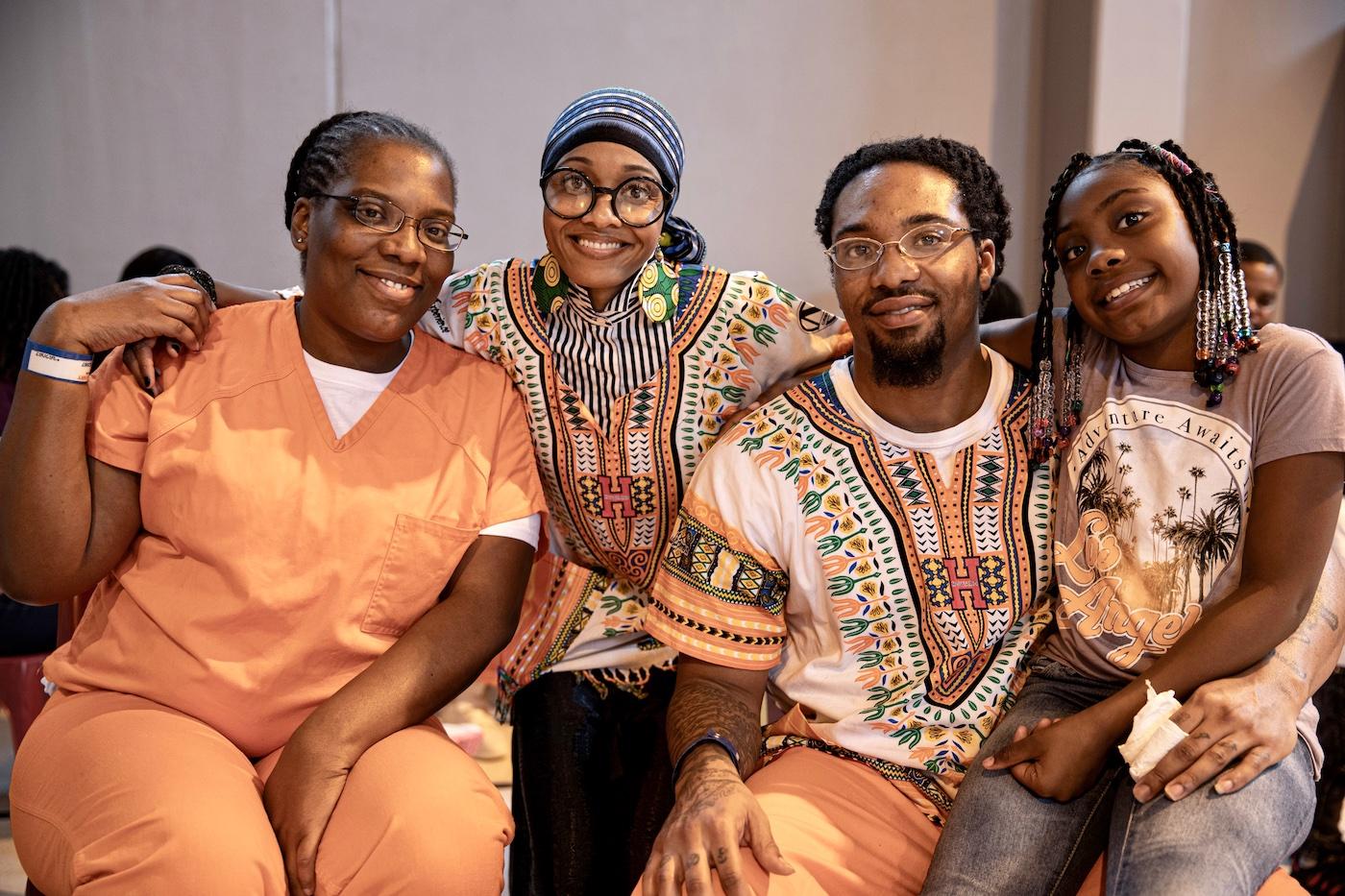In research, children of incarcerated parents (COIP) are often dehumanized, villainized, stigmatized and labeled as future prisoners.
I was very uncomfortable with how research was oversaturated with negative outcomes and rarely mentioned the stories of those children who defied odds and even became community leaders. These missing narratives mirrored stories I knew to be true in my own family and among individuals I trusted and loved. To me, we were all a part of one big fragile community.
When I set out to explore these children’s experiences as a doctoral student in 2005, I knew that speaking directly to the children themselves would help realign research by providing more realistic perspectives of what their lived experiences really were.
Through my dissertation study, “Exploring the Silence Among Children of Prisoners,” I was blessed to meet many resilient children who were young, empathic, faithful, intelligent and Black. These children and others have empowered me to continue this scholarship, regardless of the negative feedback from individuals who argue that a prism of deficiency should remain standard.
I have learned that much more can be learned in research from asset-based rather than deficit-based thinking, meaning focusing on subjects’ strengths rather than their supposed deficiencies, especially when considering the collateral consequences of parental incarceration on children and young adults. I captured dynamic, detailed and inspiring narratives of success through almost 200 hours of interviews as told by 75 young adult COIP.
These young adults were successful in many areas of their lives and provided national context for a qualitative study entitled “Children of Incarcerated Parents: Pathways to Resilience and Success.” This national study of COIP, made possible by the Center for Advancing Opportunity at the Thurgood Marshall College Fund, highlighted the importance of fully understanding how COIP successfully navigate young adulthood and beyond. Findings show that COIP success pathways are unique, innovative and sometimes nontraditional. These pathways provide information and hope about proactive ways in which policymakers, practitioners and researchers and other children of incarcerated parents can be supported along the winding journey of life.
Many of these children attended historically Black colleges and universities (HBCUs) and described that experience as being a steppingstone to their current success. The HBCU campus was a place where they felt safe and protected from the outside world that labeled them by their parents’ mistakes. Fur thermore, many of these young adults attributed their success to their incarcerated parents, described as mentors who parented from behind the wall.
During the interviews, the COIP shared longitudinal experiences as professors, lawyers, graduate students, research scholars and leaders in their communities. They are politically engaged and active citizens on their college campuses. They supported their siblings and built loving support networks for their incarcerated parents. Even in the midst of all these accolades, the COIP who participated in the study are honest, humble, self-reflec- tive, trustworthy, authentic and eager to reach out and support others in similar situations.
It is a true travesty to limit COIP to what research hypothesizes they will become. We can learn so much more from listening to children of incarcerated parents and empowering them to dream, achieve goals and blaze paths forward.
Bahiyyah M. Muhammad, Ph.D., is associate professor of criminology in the Department of Sociology and Criminology at Howard University.
Article ID: 531




